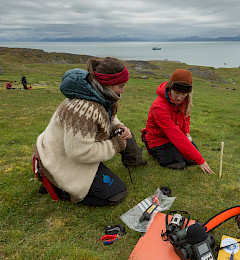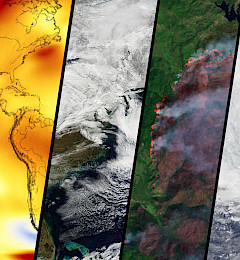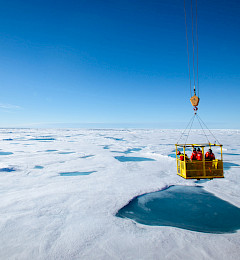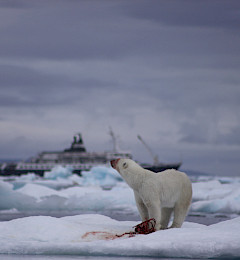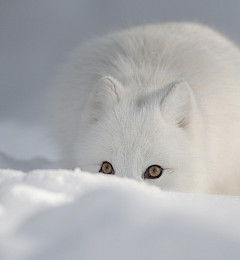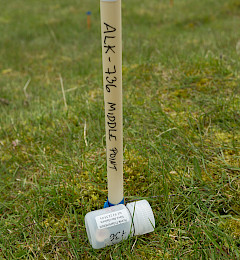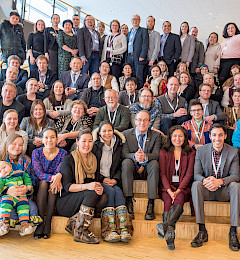Approach
Learn about how CAFF works and the types of activities it undertakes.
How we work
To help fulfill its mandate, CAFF undertakes a series of activities in line with its Operating Guidelines, Framework Document, and Arctic Council Rules and Procedures. As a Working Group of the Arctic Council, all decisions and statements require consensus of the eight Arctic States. Permanent Participants have full consultation rights in connection with the Council’s negotiations and decisions, and make essential contributions to its activities in all areas. The CAFF Management Board, comprised of representatives of Arctic States and Permanent Participants, meet twice a year to take decisions and guide acitivities and implementation.
The CAFF International Secretariat coordinates and administrates the activities of CAFF. The Secretariat executes decisions made by the CAFF Board, provides administrative and advisory function to the Arctic countries, and has overall responsibility to ensure that the Work Plan implementation is well-coordinated and timely.
CAFF may establish subgroups and committees when necessary to advance CAFF objectives. Groups will be established and authorized by consensus of the National Representatives. Experts from outside CAFF may be invited as needed to facilitate activities, as long as there is consensus.
Any Arctic State or Permanent Participant may make proposals for cooperative activities and projects. All proposed activities and projects must relate to the objectives in its strategy.
CAFF activities, programs, and projects further report to the Arctic Council, a high level intergovernmental forum to provide a means for promoting cooperation, coordination and interaction among the Arctic states, with the involvement of the Arctic Indigenous communities and other Arctic inhabitants on common Arctic issues, in particular issues of sustainable development and environmental protection in the Arctic. CAFF recommendations are submitted to the Senior Arctic Officials (SAOs) of the Arctic Council in the form of reports and publications for endorsement. Arctic Council Ministerial meetings are held every two years, while SAOs meet biannually. These governments and organizations enact policies in their respective jurisdictions.
Through CAFF, a vast number of leading Arctic experts find the venue to cooperate with their peers on a circumpolar scale. This provides the opportunity to learn from each other and achieve a more holistic view of a particular field of study, which can affect their daily work within the national bodies where they are employed.
CAFF has also developed a series of Resolutions of Cooperation to guide the development of partnerships with key organizations and cooperates in a variety of international settings, connecting Arctic biodiversity knowledge into global processes.
What we do
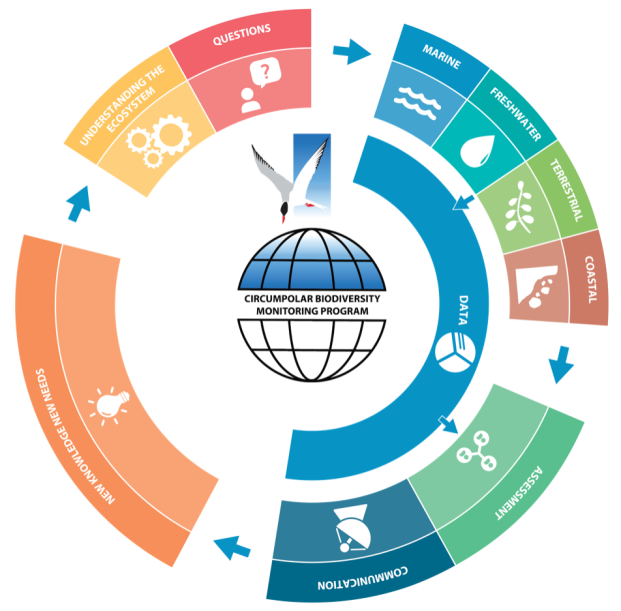 CAFF projects, programs and activities respond to information needs of the Arctic States, Permanent Participants and Observers. In general, most CAFF activities can be categorized as related to monitoring, assessments, strategies, data, communication and policy, although many projects, programs and activities overlap across these categories. Results from activities provide new understandings and inform the development of future activities.
CAFF projects, programs and activities respond to information needs of the Arctic States, Permanent Participants and Observers. In general, most CAFF activities can be categorized as related to monitoring, assessments, strategies, data, communication and policy, although many projects, programs and activities overlap across these categories. Results from activities provide new understandings and inform the development of future activities.
CAFF monitoring activities gather important information to track and report on the status and trends of key elements of the Arctic environment. Monitoring activities are undertaken by the Circumpolar Biodiversity Monitoring Program (CBMP).
CAFF assessments describe the current state of Arctic ecosystems and wildlife using the best available scientific and Indigenous Knowledge. Assessments contain the baseline data that can be used in regional and global assessments. They are the fully referenced and independently reviewed collaborative efforts of hundreds of experts from across the circumpolar region.
CAFF strategies provide recommendations on how to implement plans intended to directly conserve species and ecosystems. Strategies develop a framework to ensure the most effective management response. These strategies are developed via international cooperation between experts across the Arctic region.
Data from CAFF activities are made available, where possible, under the Arctic Biodiversity Data Service.
CAFF develops recommendations and advice for policy and decision makers.
 Arctic Council Working Group
Arctic Council Working Group 